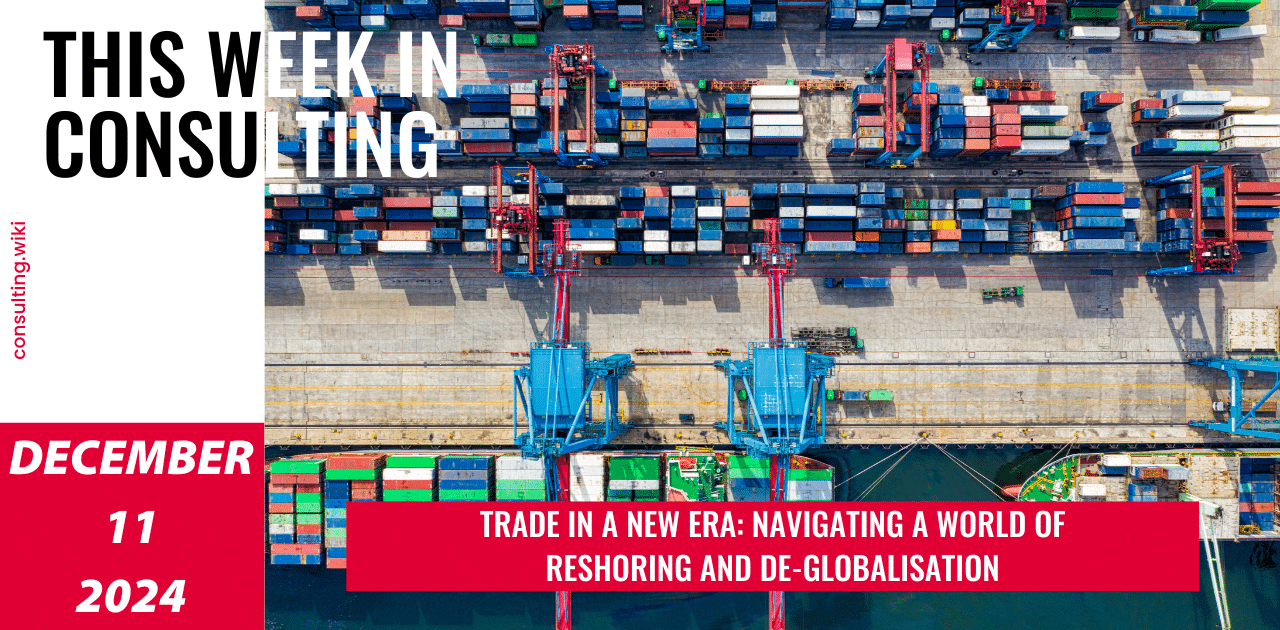Editorial
The private equity industry has this remarkable ability to turn discarded assets from large organizations into highly valuable businesses. And that keeps me perpetually enthralled. No wonder, private equity executives enjoy a fancy status among their corporate peers. One could argue that these businesses were incompatible with their parent companies, leading to their carve-out. Then, private equity portfolios are also highly diverse, adding to the complexity of this task.
What is the secret sauce that enables private equity firms to achieve this feat? Is it their ability to focus, the reduced short-term pressure from investors, the use of different investment metrics, or stronger interactions between the private equity firm and the portfolio company? Perhaps it is the management’s skin in the game. While there is no definitive answer, exploring these points would certainly be fruitful.
Consulting firms are also working hard to decipher this code. In this week’s edition of This Week in Consulting, we explore how CFOs are adapting to private equity trends, the role of the Chief Performance Officer in private equity success, and how private equity firms are embracing sustainability. We also take a step back and look at 2023 predictions for the private equity industry.
Enjoy the read. Feel free to comment. Would love to hear your views.

Laurent THOMAS
Chairman Consulting Quest
This week’s must read
In This Week’s Must Read, we explore how CFOs are adapting to private equity trends, the role of the Chief Performance Officer in private equity success, and how private equity is embracing sustainability plus 2023 predictions for this industry.
The “economic green transformation” is perhaps the most complex endeavour in human history – also the most expensive too. As per an estimation by European Union, a whopping EUR 8 trillion investment is required in the EU in the period to 2030.
Where will that money come from? While the public sector would contribute around one-quarter of the required amount, private equity can well be the catalyst for the green transformation by investing in ESG-compliant assets to actively transform companies from grey to green while generating returns for limited partners. This paper from Roland Berger looks at the challenges private equity faces and suggests strategies for transforming those challenges into opportunities.
This week’s media
Steve Balaban, founder, and CFA of Mink Learning, shares his insights on the private equity industry in this video, where he predicts three trends that could impact the industry in 2023. Firstly, he predicts that there will be lower multiples in private equity deals. Secondly, Balaban predicts an increase in flexible structures for private equity deals. Lastly, Balaban predicts that non-sexy industries will attract assets. Watch this video to learn about these trends in detail.
Thought Leadership
Recently, Financier Worldwide (FW) conducted a thought-provoking discussion with seasoned experts, Corey Smith, Merrill Strobel Bohren, Kevin Cowherd, Dave Owen, and Ankur Sheth, all from Ankura Consulting Group, LLC, to explore new approaches to private equity (PE) value creation. The conversation delves into several critical questions, including defining value creation and its significance in the current market, the importance of having a value creation plan in place, popular methods and strategies for value creation, how the competitive deal landscape influences value creation, and the significance of information in boosting value. Overall, this masterful piece provides valuable insights for PE firms seeking to enhance their value-creation strategies and maximize returns on investment in today’s competitive market.
As we enter a new era of economic uncertainty, CFOs will need to rely heavily on the experience they have gained as they seek to help their organizations remain competitive. With the private equity industry approaching maturity, it’s time to ask these questions: How are emerging private equity trends shaping the strategic priorities of CFOs and COOs? What factors do private equity CFOs see as vital to their strategy for accelerating their organization’s growth?
In the wake of the Great Resignation, what are the top talent management goals for financial executives at private equity firms? The 2023 EY Global Private Equity Survey explores how CFOs will help their organizations step up and remain focused on sustainable growth and value creation, while organizations build a bridge to the future.
Despite the current economic challenges, it appears that private equity funds are poised to continue investing throughout 2023 and beyond. In fact, recent reports show that private equity dry powder levels – the capital committed by institutional investors to private equity funds that have not yet been invested – are at an all-time high, with a staggering $1.24 trillion available globally. Even more encouraging, it’s unlikely that this dry powder will remain untouched for long, as further fundraising is expected. This influx of capital presents an exciting opportunity for owner-managed businesses looking to secure investment and grow their companies. This article mentions some trends that businesses should be cautious and pay attention to despite this optimism in the air.
In the fast-moving world of private investments, executive talent is even more crucial. The success of venture capital investments can be even more reliant on the quality of the existing leadership team. Bringing in a top-tier CPO gives investment firms and their portfolio companies an edge over firms whose portfolio optimization groups haven’t yet evolved to include such a role. This insightful piece by McKinsey explores various ways CPOs can add tremendous value to each phase of a PE deal cycle.
This week’s consulting news selection
PwC has reached an agreement to acquire People Force, a UK-based consulting firm specializing in people and technology services. The acquisition will strengthen PwC’s People & Organisation practice by providing advisory services in areas such as HR transformation and workforce analytics. The deal is expected to close in the coming months, subject to regulatory approval.|@PwC
PM Consulting Group has changed its name to Vistant, effective immediately. The rebranding reflects the company’s evolution and growth as a consulting firm, expanding its services to include digital transformation, innovation, and customer experience. The new name Vistant reflects the company’s focus on helping clients envision and realize their future through strategic consulting services.|@Vistant
Cognizant has been hired by Volkswagen Group Ireland to help transform its digital customer experience. The goal of the partnership is to improve the online customer experience, streamline customer journeys, and provide personalized experiences across multiple channels. The collaboration is part of Volkswagen’s broader digital transformation strategy to boost customer engagement and growth in the Irish market.|
Ryan has acquired RTC Consulting, a tax technology consulting firm that specializes in tax automation, data analytics, and ERP systems. The acquisition is aimed at strengthening Ryan’s tax technology and automation capabilities and enabling it to provide end-to-end tax technology solutions to its clients. The financial terms of the deal were not disclosed.|
Laurent is the Chairman and Co-founder of Consulting Quest. Focused on greater value creation, and being thoroughly familiar with Consulting, Laurent has sourced and sold millions of dollars worth of Consulting over the course of his career. Prior to joining Consulting Quest, Laurent was Executive Vice President Oil and Gas at Solvay and Senior Partner Transformation at Oliver Wyman.










